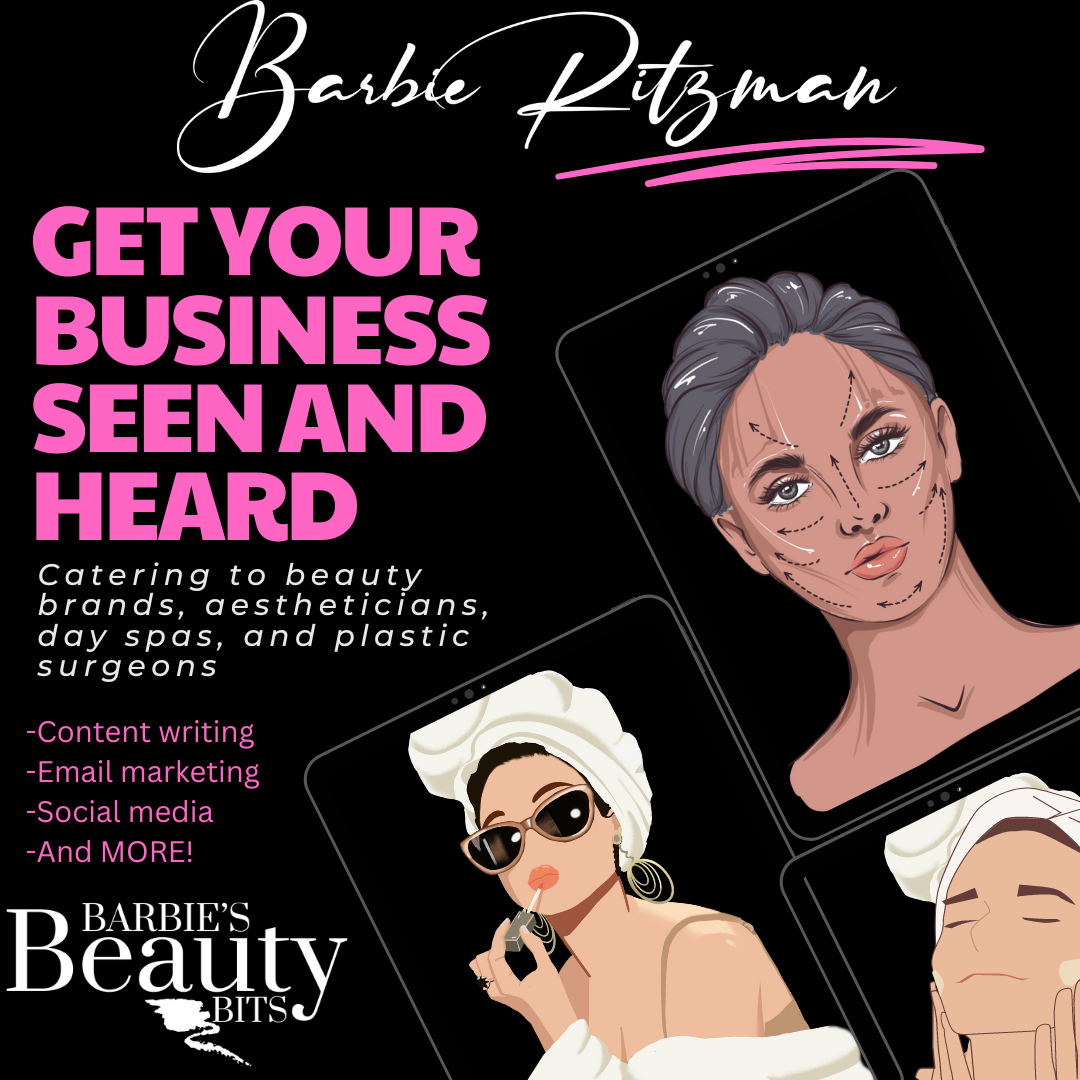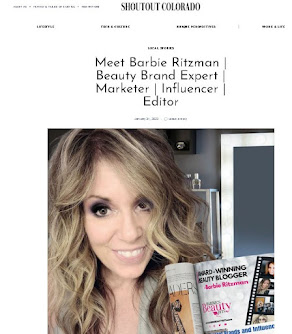Simple Tooth Brushing Habits That Can Improve Your Oral Health
A healthy smile starts with the simple act of brushing your teeth. But are you brushing the right way? Most people brush daily, yet still struggle with cavities, gum problems, or bad breath. It’s not just how often you brush, but how well you do it that really matters. Minor tweaks to your routine can make a big difference in your oral health.
From choosing the right toothbrush to maximizing brush strokes, adapting the right habits can be the key to having a healthier, cleaner, fresher-smelling mouth with a brighter, happier smile to enjoy in the coming years.
In this blog post, Barbie's Beauty Bits will discuss 8 simple brushing habits that will take your oral health to the next level without spending top dollar on high-end products or undergoing painful procedures.
Are you ready to learn more? Let's dive in.
Brush For A Full Two Minutes Every Time
While this may seem too obvious, most people do not brush long enough. The American Dental Association recommends that you brush for two or more minutes twice a day. Research shows that the average person will brush for about 45 seconds, and that's all for the day. Rushing when brushing leaves plaque, food particles, and bacteria behind, which can cause tooth decay and gum disease.
To ensure you're brushing for the correct time frame, consider using a timer, singing along to a favorite two-minute tune until you are done, or purchasing an electric toothbrush with a timer. Brushing for up to two minutes twice a day will give you enough time to clean each tooth surface effectively, which leads to healthier gums, breath, and a brighter smile.
Choose The Right Toothbrush For Your Needs
You've gone to the store and there are so many toothbrushes, but they are not all equal. The correct toothbrush can make a big difference in your oral health. Soft-bristled toothbrushes are generally the best option because they clean between teeth and underneath the gum line well without wearing down the enamel or irritating the gums.
Hard bristles, while being more aggressive, can wear down enamel over time and lead to sensitivity or gums pulling back. No matter what you use, manual or electric toothbrushes, the toothbrush head must be small enough to reach all areas of your mouth.
If you wear braces or dental appliances, you may be required to use special brushes, which your dentist might recommend. Ensure to replace your toothbrush or brush head after every 3–4 months or sooner if the bristles are worn out.
Upgrade Your Toothpaste For Better Results
Not only does toothpaste leave your mouth feeling clean, but it also plays a vital role in protecting your teeth. While old favorites like fluoride are still trusted for cavity prevention, there’s a new crop of options to explore.
Nano-hydroxyapatite, a toothpaste that mimics the mineral structure of your enamel, is now trending for being able to repair small cracks in the enamel and relieve sensitivity. As highlighted by the team behind BetterBiom, switching to Nano-hydroxyapatite toothpaste will strengthen your enamel and promote a cleaner, smoother surface that is less susceptible to plaque buildup. This product is beneficial for individuals suffering from sensitivity and early enamel loss.
Switching to toothpaste with advanced remineralizing agents can make your regular brushing routine an investment in oral health that will last for the longest time possible.
Master The Proper Brushing Technique
Like any critical routine, brushing your teeth is no joke and is not something to take lightly. Using the right technique matters. Many people brush with harsh, horizontal strokes, which can do more harm than good. Instead, try angling your toothbrush at 45 degrees toward your gums and using gentle, circular motions. This approach helps remove plaque along the gum line without irritating your teeth.
Be sure to brush all surfaces of your teeth, including the outer, inner, and chewing surfaces. You can spend about 30 seconds on each quadrant of your mouth to achieve even, clean teeth. Don't press your toothbrush too hard in an attempt to achieve squeaky clean teeth. This will wear down your enamel and may damage your gum tissue. Gentle, thorough brushing will be safer and more effective on your teeth and gums.
Don't Forget To Brush At Night
Most individuals brush in the morning only, before consuming breakfast, without remembering that brushing at night is much more important. Your mouth picks up food particles, sugars, and bacteria all day long, which will combine to form plaque. If you do not brush at night, those particles will remain on your teeth throughout the entire night, leaving you much more susceptible to tooth decay and gum disease. Saliva production is also minimal when sleeping, making your mouth more prone to bacteria.
Brushing in the evening before you sleep will help remove plaque buildup and protect your teeth when your body is at rest and healing. You can brush daily after the evening meal or night-time snack and then floss at other times to remove loose food particles that are between teeth.
Make Sure To Brush Your Tongue
Just like your gums and teeth, your tongue harbors bacteria. Failing to brush your tongue can lead to bad breath and can contribute to plaque build-up in your mouth. Brushing your tongue or using a tongue scraper will remove odor-causing bacteria and leave your mouth feeling very clean.
The rear of the tongue is particularly a bacterial breeding ground. You can use soft strokes, starting from the back and working towards the front.
Be careful not to press too hard or trigger your gag reflex. Adding this quick step to your brushing routine takes less than 30 seconds but can make a big difference in your breath and overall oral health. A clean tongue means a cleaner mouth.
Rinse Your Toothbrush And Store It Properly
Proper toothbrush maintenance is often overlooked as part of an overall healthy oral routine. To rinse your toothbrush, swish it under running water to remove any residual toothpaste, food particles, or bacteria. Please do not put it into a sealed cup or cover it immediately, as this may create a humid space where bacteria can thrive.
Rather, lay it on its end and let it air dry in an open place. If you have multiple brushes in the same holder, ensure you don't let them touch each other to avoid cross-contaminating yourself.
Also, never share your toothbrush with others. If you’ve been sick, replace it afterward to avoid reinfection. Letting your toothbrush dry completely between uses helps prevent bacteria buildup and keeps your mouth cleaner whenever you brush.
Make Brushing Part Of A Complete Oral Care Routine
Brushing alone will not guarantee optimal oral health. But it should be one part of a comprehensive routine that includes flossing, mouthwash rinsing, and regular visits to the dentist. Flossing removes plaque and food from between teeth that toothbrush bristles cannot reach. Mouthwash can destroy bacteria, eliminate halitosis, and inhibit plaque formation.
Scheduling regular dental visits (at least every six months) will allow for early detection of issues and keep your smile in top condition. Brushing is more like the foundation of your oral health; it shouldn't be the only thing. If you combine good brushing with other good habits, you can have healthier teeth, gums, and a healthier smile.
Good oral health doesn't have to be complicated; it all starts with simple, everyday habits. One of the most essential habits is brushing your teeth correctly. Making simple changes like brushing for a whole two minutes, brushing properly, using a high quality toothpaste, and not forgetting about your tongue can make a huge difference.
The best part? These routines don't cost much time or money but can result in healthier teeth, gums, and overall better health. Begin incorporating these eight routines into your life to give your mouth the attention it's been craving for.
Looking for more oral health tips? Make sure to check out some of my other articles.













I need to keep these tips in mind. I do want to make sure my teeth are healthy.
ReplyDeleteMy last dentist visit was not good. I am going to try some of these teeth tips
ReplyDeleteGood daily oral habits are vital for optimum oral health. I'm due for my next dentist appointment and I am loving my new electric toothbrush for sure. :)
ReplyDeleteI’m always trying to help my family build better habits, and this gave me a few simple reminders I can actually stick with. Oral health often gets overlooked, but it really makes such a difference!
ReplyDeleteI really appreciate how these tips are simple but effective. It's motivating to know I can improve my oral health without spending a fortune.
ReplyDeleteWow, this post is very helpful and informative! I love being able to learn about the angles in brushing my teeth.
ReplyDelete